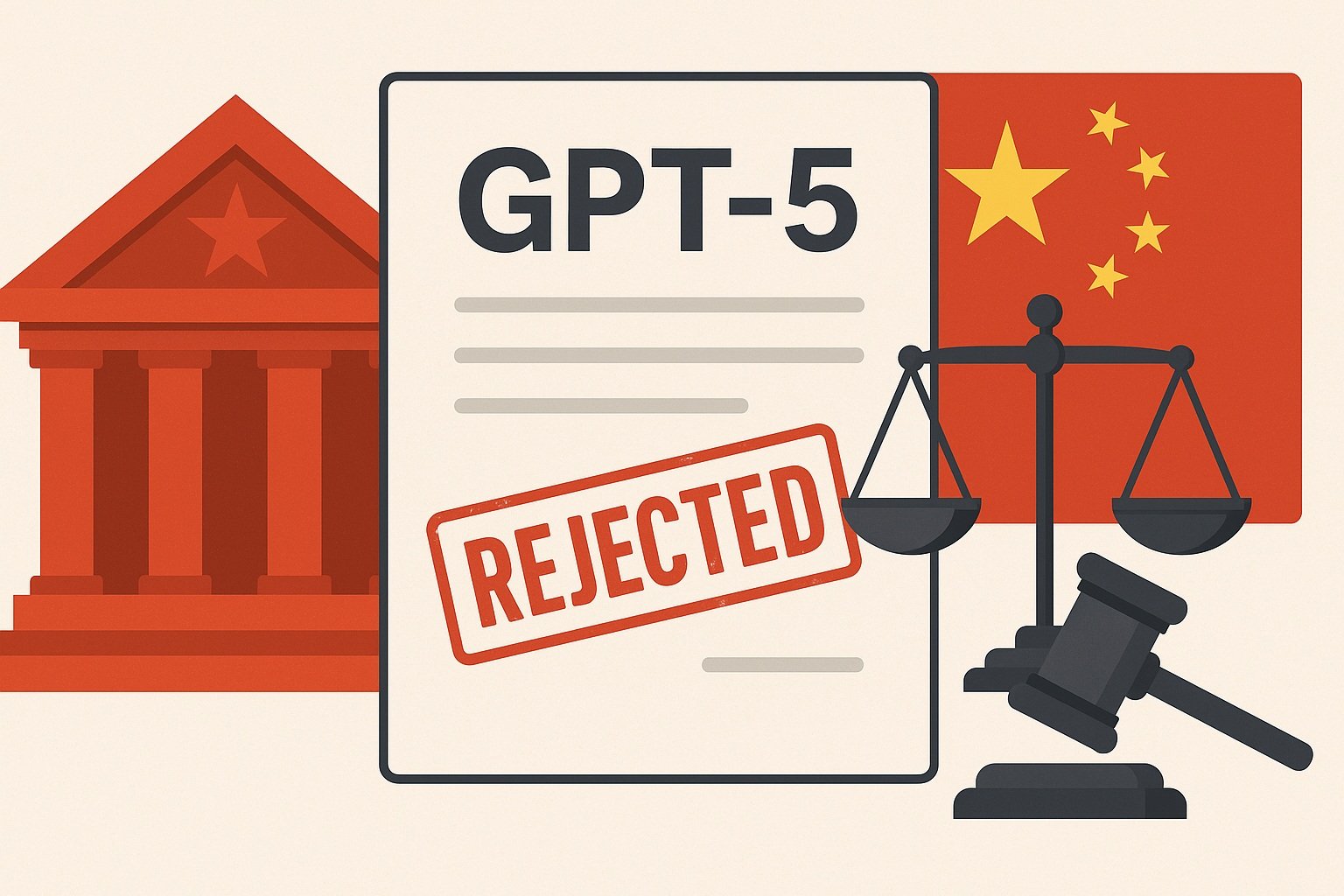Background and What Happened
In August 2025, China, through its intellectual property office CNIPA (China National Intellectual Property Administration), officially rejected OpenAI’s application to register the trademark “GPT-5” on the mainland. The filing, submitted via OpenAI OpCo, was denied and is now under appeal.
This is not the first time OpenAI has faced such difficulties: between March and November 2023, CNIPA rejected trademark applications for “ChatGPT” and “GPT,” including versions such as GPT-4, GPT-5, GPT-6, and GPT-7. All of those rejections are also currently under appeal.
Why Did China Reject It?
Experts note that the abbreviation “GPT” (Generative Pre-trained Transformer) is considered overly descriptive and widely used across the AI industry. Countries including the United States have previously rejected OpenAI’s attempts to register “GPT” and “ChatGPT” for the same reason — the term is not distinctive enough and merely describes the technology behind the product.
The U.S. Precedent
A similar situation occurred in the United States. In February 2024, the U.S. Patent and Trademark Office (USPTO) rejected OpenAI’s applications for “ChatGPT” and “GPT,” citing the descriptive nature of these terms.
What This Means for OpenAI
Even though “GPT” has effectively become synonymous with OpenAI’s brand — and the company has even updated its usage rules for developers leveraging the API — the lack of formal trademark protection makes it more difficult to defend against unauthorized use, particularly in China. Official trademark registration is important to secure exclusive rights and to protect the brand in commercial contexts
Conclusion
| Aspect | Details |
|---|---|
| Date of rejection | August 2025 — application denied, now under appeal |
| Trademark rejected | “GPT-5” in China |
| Reason | Considered descriptive and insufficiently distinctive |
| Earlier cases | “ChatGPT,” “GPT,” and versions like GPT-4, GPT-6, GPT-7 rejected in 2023 |
| U.S. precedent | USPTO issued similar rejections in February 2024 |
| Impact | Reinforces the global view that “GPT” is too technical and widely used to serve as a distinctive trademark |

Leave a Reply